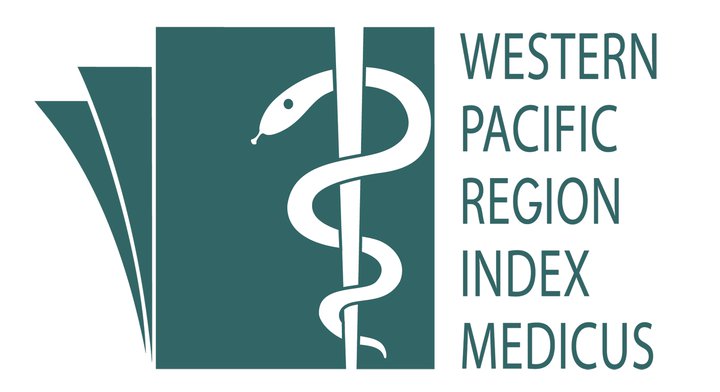Informed Consent in Clinical Trials with Reference to Information Disclosure to Patient-Subjects
Keywords:
Informed consent - Clinical trials - Patient-subjects - Doctor-investigators - Process - Information.Abstract
Introduction
The aim of this study was to examine the aspect of information disclosure by doctor-investigator during the process of obtaining informed consent in clinical trials.
Methods
This research employed a mixed-method data collection that is library research and interview. A qualitative methodology and analysis were used in an open-ended, face-to-face interviews with 17 patient-subjects. The interview questions were based on information that needed to be disclosed to patient-subjects during the process of obtaining informed consent. Each interview took place in Kajang Hospital and National Heart Institute and lasted 25-30 minutes. Interviews were conducted in Bahasa Melayu and English. The interviews were tape-recorded, and the main points from the interviews were jotted down to ensure that all information was adequately gathered. Interviewed occurred in Kajang Hospital and National Heart Institute. The participants were patients who had been referred to the Kajang Hospital and National Heart Institute. They were recruited (8 from Kajang Hospital and 9 from National Heart Institute) by their own doctors to participate in a study to evaluate the safety and effectivenes of the investigational stent after been diagnosed with coronary artery disease and also in a study to investigate drug for antidepressant. respectively.
Results
The study revealed that doctor-investigators fail to disclose full information to patient-subjects. Instead, doctor-investigators only disclosed information which they thought were necessary for the patient-subjects to know. The study also showed that there were doctor-investigators who did not disclose information at all to the patient-subjects.
Conclusions
This study implies that the aspect of information disclosure in the process of obtaining informed consent in clinical trials is rather poor and did not fulfill the criterion of good medical practice. A random monitoring task to be conducted by the research ethics commitees during the informed consent process is suggested.
Â
References
Morreim EH. The Clinical Investigator as Fiduciary: Discarding a Misguided Idea. Journal of Law, Medicine & Ethics. 2005; 33 (3): 586-598.
Lenrow DA. The treating physician as researcher: Is assuming this dual role a violation of the Nuremberg code. Temple Journal of Science, Technology & Environmental Law. 2006; 25 (1): 15-48.
Roger LJ. Researcher liability for negligence in human subject research: Informed consent and researcher malpractice action. Washington Law Review. 2003; 78: 229.
Vollman J. & Winau R. Informed consent in human experimentation before the Nuremberg Code. British Medical Journal. 1996; 7070(313). Available from http://www.bmj.com/archieve/7070nd1.htm.
Yuhanif Yusof, Anisah Che Ngah, Latifah Amin. Autonomi pesakit-subjek melalui izin bermaklumat dalam penyelidikan klinikal. Kanun: Jurnal Undang-undang Malaysia. 2011; 23 (2): 198.
Joubert G, Steinberg H, Elna van der Ryst, Chikobvu P. Consent for participation in the Bloemfontein Vitamin A trial: How informed and voluntary? American Journal of Public Health. 2003; 93 (4): 582.
James RP. Ogloff & Randy K. Otto. Are research participants truly informed? Readibility of informed consent forms used in research. Ethics & Behavior. 1991; 1(4): 239 – 252.
Morine K. “The Standard of Disclosure in Human Subject Experimentationâ€. Journal of Legal Medicine. 1998; 19: 157.
Rathor MY, Mohammad Fauzi Abdul Rani, Azarisman Mohammad Shah, Sheikh Fariuddin Akter. Informed consent: A socio-Legal Studyâ€. Medical Journal Malaysia. 2011; 66 (5): 423-422.
Hall A. The role of effective communication in obtaining informed consent in Doyal, L, Tobias, JS. ed., Informed consent in medical research. BMJ Publishing, London. 2001.
Lynoe N, Sandlund M, Dahlqvist G. & Jacobsson L. Informed consent: study of quality of information given to participants in a clinical trial. British Medical Journal. 1991; 303: 610-13.
Puteri Nemie Jahn Kassim & Mohamad Akran Shair Mohammad. The Doctrine of Informed Consent in the United States, England, Australia and Malaysia: A Comparative Case Analysis†in Puteri Nemie Jahn Kassim & Abu Haniffa Mohamed Abdullah. ed., Issues in Medical Law and Ethics. Medical Law & Ethics Unit Publishing: Kuala Lumpur. 2003.
In an interview with Dr. Suhaini Kadiman, Chairman of National Heart Institute Research Ethics Committee, National Heart Institute, Jalan Tun Razak, Kuala Lumpur. (June 24, 2010).
McNeill P, Pfeffer N. “Learning from unethical research†in Doyal, L, Tobias, JS. ed., Informed consent in medical research. BMJ Publishing: London. 2001.
Sommerville A. “Informed consent and human rights in medical research†in Doyal, L, Tobias, JS. ed., Informed consent in medical research. BMJ Publishing: London. 2001.
In an interview with Pik Pin Goh, Director, CRC – Center for Clinical Research at http://www.pharma.focusreports.net/index.php#state=InterviewDetail&id=1119 [cited 2011 July 17].
Brannigan, MC, Boss, JA. Healthcare ethics in a diverse society. Mayfield Publishing Company. 2001.
Downloads
Additional Files
Published
How to Cite
Issue
Section
License
IJPHR applies the Creative Commons Attribution (CC BY) license to articles and other works we publish. If you submit your paper for publication by IJPHR, you agree to have the CC BY license applied to your work. Under this Open Access license, you as the author agree that anyone can reuse your article in whole or part for any purpose, for free, even for commercial purposes. Anyone may copy, distribute, or reuse the content as long as the author and original source are properly cited. This facilitates freedom in re-use and also ensures that IJPHR content can be mined without barriers for the needs of research.





